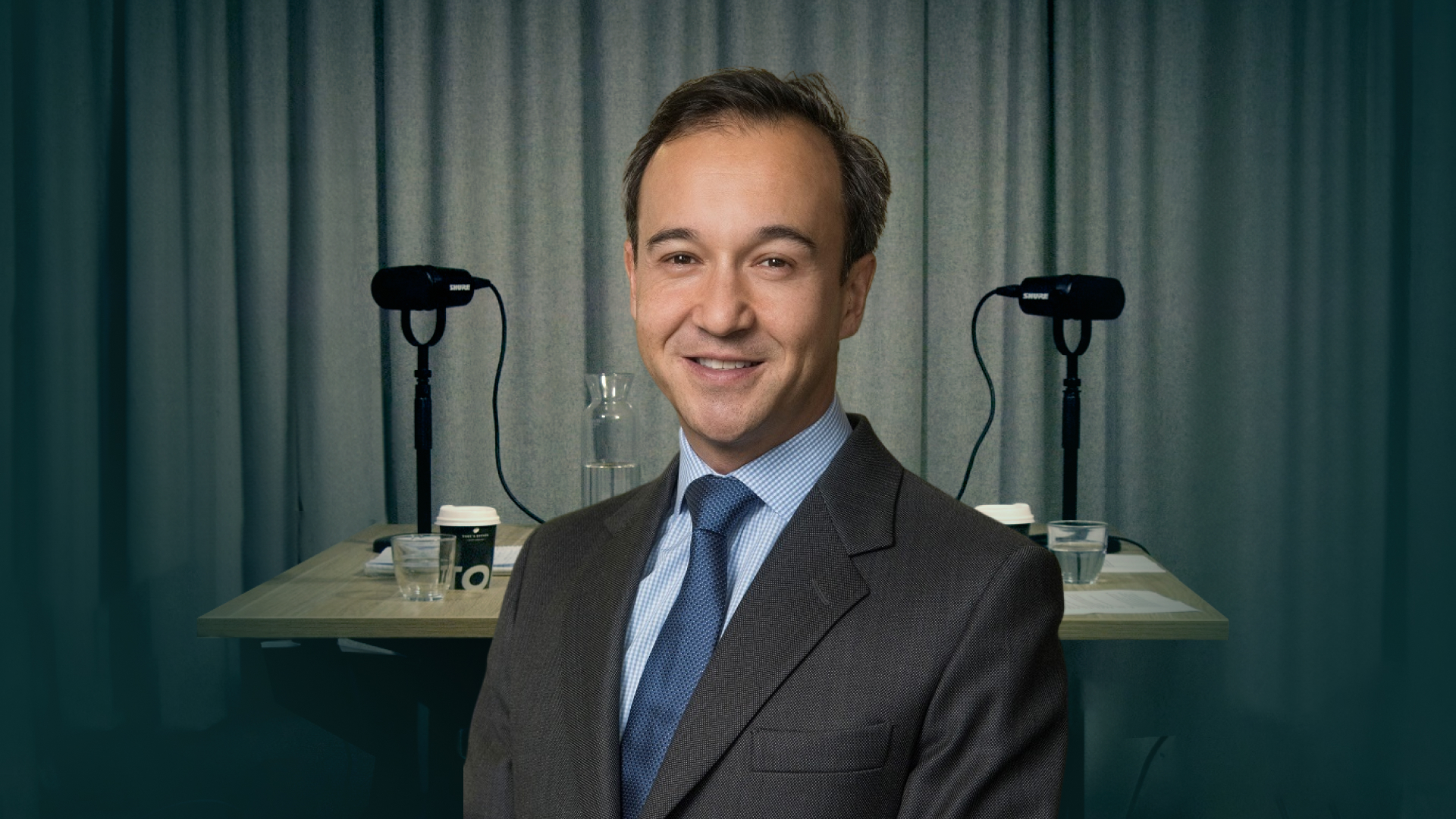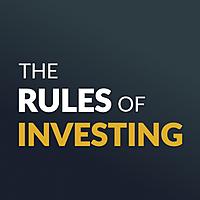Magellan's value picks as sentiment soars

It’s not often you hear a global fund manager say they’re fully invested when equity markets look expensive. But that’s exactly the case for Arvid Streimann, Head of Global Equities at Magellan Investment Partners.
Despite record-low risk premiums and clear echoes of the Dot-com boom, Streimann believes investors can still find value - particularly in the defensive names that have been left behind while the AI story takes centre stage.
“Better sentiment has been the main driver of global equity returns,” he says. “But it’s going to be hard for it to get much higher. If it does, we’re in a new paradigm - and paradigms don’t change that much.”
In this episode of The Rules of Investing, Arvid Streimann offers a practical guide to taking emotion out of investing and finding value when bubble talk dominates the headlines. He shares why strong brands remain enduring sources of value, a framework for thinking about winners and losers in AI, and the stable compounder he’d happily own for the next five years.
Making sense of the macro
Magellan’s investment approach is built from the bottom up, but macro analysis plays a key supporting role. Streimann sees it as a way to add context and discipline, not as a trading tool.
He focuses on three forces that drive long-term valuations: interest rates, profit growth, and risk premiums. Together, they capture both the fundamental and psychological sides of the market. Today, Magellan’s estimate of the equity risk premium - effectively the price investors demand for taking market risk - sits near record lows. That means optimism is running high.
To cross-check that view, Streimann looks to the US manufacturing ISM survey, particularly the new orders component. It’s a useful lead indicator for corporate profits and business activity. Readings in the low 40s have historically marked strong buying opportunities. At present, it’s a touch below average - hardly booming, but far from recessionary.
“The US economy and profit outlook are okay,” he says. “Despite everything policymakers have thrown at it, it’s still doing fine. It’s not about to collapse.”
Finding value when everything looks expensive
The Magellan Global Fund is fully invested, but defensive - a reflection of Streimann’s view that investors should stay in the market, but do so intelligently. He’s wary of the exuberance driving certain sectors, yet sees opportunity in others that have been unfairly neglected.
One of those opportunities lies in consumer defensive stocks. After a long run of inflation and cost-of-living pressures, investors have turned away from the consumer sector. But Streimann argues that the outlook is far healthier than sentiment suggests. While households may feel worse off after the COVID-era cash boom ended, the underlying fundamentals, particularly employment, remain sound.
“Consumers were flush with cash during COVID, and they’re not anymore,” he says. “So they feel worse off, but the job market isn’t collapsing. The consumption outlook isn’t terrible.”
Magellan’s portfolio includes global household names like Nestlé (SWX: NESN), Coca-Cola (NYSE: KO), and Procter & Gamble (NYSE: PG) — companies whose brands and distribution networks have survived multiple cycles. The team has also leaned into luxury, holding LVMH (EPA: MC) and other brands that cater to what Streimann calls the “lucky consumer” - high-income households whose spending is largely recession-proof.
“The higher-income consumer never seems to have a recession,” he says. “Their consumption is durable, and that’s an attractive place to be.”
Magellan also captures exposure to everyday spending through Visa (NYSE: V) and Mastercard (NYSE: MA), which “clip the ticket every time you tap your card at the grocery store.” It’s an elegant way to benefit from consumer activity without relying on discretionary splurges.
The common thread is brand power - companies that stay close to the customer and continually reinvest in marketing and R&D to maintain relevance. “Big brands exist because they can afford to support themselves,” Streimann explains. “When they keep reinvesting in the brand and product innovation, it becomes very hard for new entrants to displace them.”
Trump, tariffs, and the strength of the US
Geopolitics has re-entered the conversation with Donald Trump again talking tariffs. For Streimann, the noise around inflation and trade shouldn’t distract investors from fundamentals. Magellan’s models suggest that even in a worst-case scenario, new tariffs would lift inflation by less than two percentage points - and that figure would be diluted as manufacturers, importers, and retailers absorb some of the cost.
“Trump doesn’t want to destroy markets,” Streimann says. “It’s mostly bluff. The US economy’s been remarkably resilient no matter what’s thrown at it.”
He remains upbeat on the long-term US story. America’s combination of Ivy League universities, Silicon Valley innovation, and Wall Street financing creates an ecosystem that no other country can replicate. Still, he sees inequality as a slow-burn risk: corporate profits are near record highs as a share of GDP, and that concentration of wealth could eventually invite a political response.
“At some point, rising inequality leads to a political reaction,” he says. “That could mean higher corporate taxes or more redistributive policies. It’s not a near-term issue, but it’s worth keeping on the radar.”
AI: separating the hype from opportunity
Few themes have captured investor imagination like artificial intelligence. Streimann believes the current phase has many of the hallmarks of an early bubble - rapid capital investment, retail excitement, and stretched valuations - but we’re not at the point of mania just yet.
“Bubbles tend to accelerate into the top as people pile in despite knowing it’s risky,” he says. “We’re not there yet.”
Magellan’s approach is to stay high on the quality curve, backing companies that will endure regardless of how the AI race evolves. Core positions include Taiwan Semiconductor Manufacturing Company (NYSE: TSM), ASML Holding (NASDAQ: ASML), and the big cloud providers — Amazon (NASDAQ: AMZN), Alphabet (NASDAQ: GOOGL), and Microsoft (NASDAQ: MSFT).
Within software, Streimann draws a sharp distinction between businesses with sticky, embedded products and those more vulnerable to disruption. SAP (ETR: SAP), for example, is tightly woven into corporate workflows and can use AI to enhance its offering. By contrast, firms like Adobe (NASDAQ: ADBE) are easier for customers to replace with AI-driven alternatives.
Over time, he expects the winners to shift from those selling computing power to those using it more efficiently. “As compute costs fall, the value will migrate to the users of AI,” he says. “That’s where the new winners will emerge.”
Tips for protecting your downside while staying invested
When markets feel hot, the instinct to take profits can be strong. Streimann’s advice is to resist it, but to know exactly what you own and why. His three principles for protecting the downside are straightforward:
- Know your stocks: Invest in companies with clear competitive advantages, loyal customers, and management teams that look forward rather than backward.
- Know where the value is: Stay objective about price and risk. “Everything boils down to the price of risk,” he says.
- Stay true to your philosophy: “People get into trouble when they stray from what they do best.”
“Know your stocks, buy value, and stay true to your process,” Streimann says. “That’s how you protect the downside and keep compounding through uncertainty.”
Three regular questions
Every Rules of Investing guest shares a few reflections, and Streimann’s are as practical as his market views.
Lesson from a loss: During the GFC, a broker called urging him to sell everything after a market shock. He paused, reviewed his roadmap, and decided to hold. The experience reinforced the value of planning for volatility before it arrives.
What the market’s getting wrong: Risk premiums are too low. “Sentiment is elevated, but there are risks in Europe and China that markets are brushing off,” he says.
One stock for the next five years: L’Oréal (EPA: OR) Streimann admires its powerful brands, commitment to R&D, and “price ladder” that captures consumers at different income levels. “Beauty is resilient,” he says. “L’Oréal’s a reliable compounder that’s hard to disrupt.”

1 topic
1 contributor mentioned

